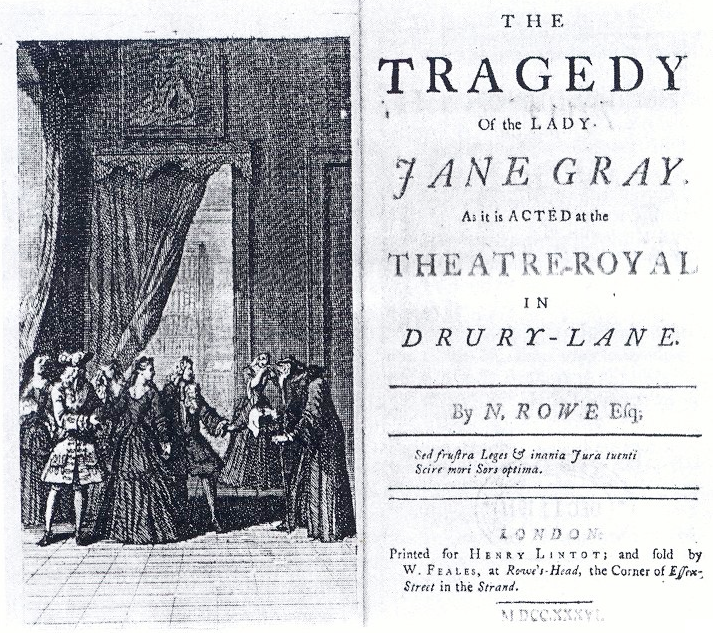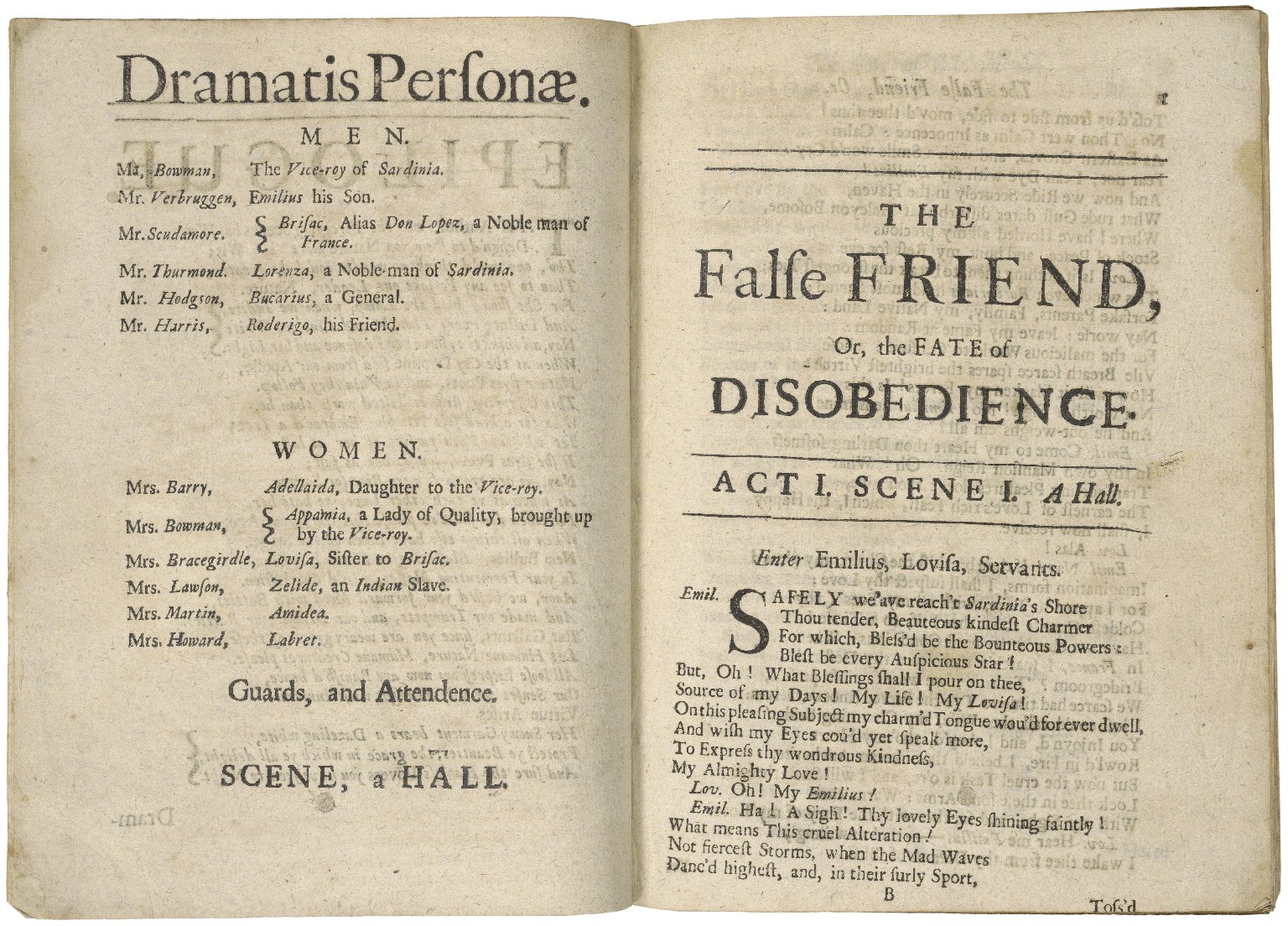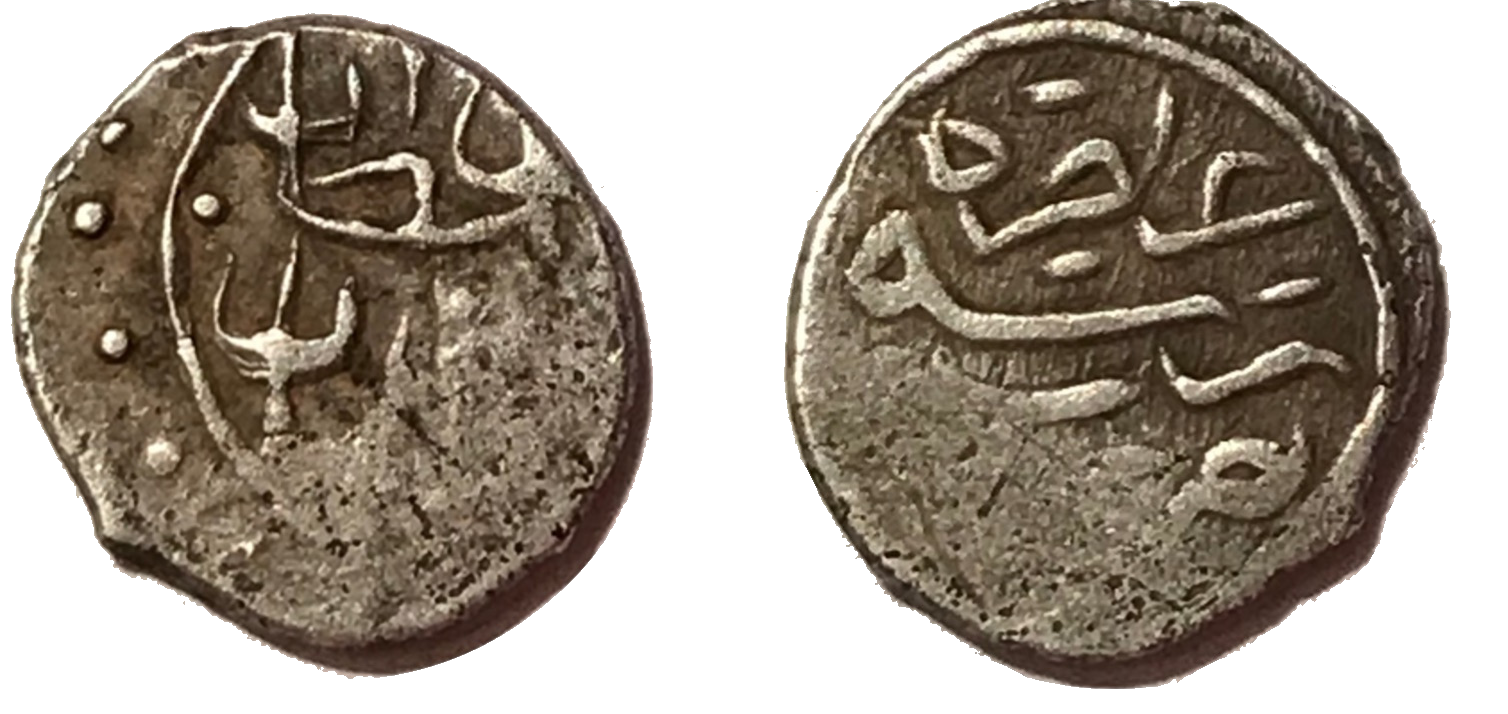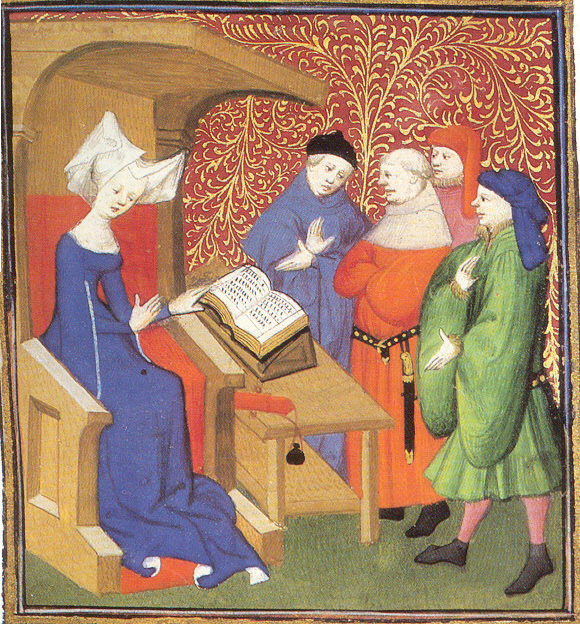|
Ibrahim, The Thirteenth Emperor Of The Turks
''Ibrahim, the Thirteenth Emperor of the Turks'' is a she-tragedy written by Mary Pix, first performed in 1696. Pix's first play, it purported to describe incidents in the life of Ibrahim of the Ottoman Empire, Ibrahim, Sultan of the Ottoman Empire. The numbering is correct only if Mehmed the Conqueror is regarded as the first emperor, and the disputed reign of his son Cem Sultan, Cem is counted as well. The play has been called a "Protofeminism, proto-feminist depiction of the power-struggle between a sultan and a Seraglio, seraglian woman". Plot The play focuses on Emperor Ibrahim and his rape of Morena. Sheker Para (Ibrahim's mistress) seeks revenge after being rejected by Amurat. She encourages Ibrahim to seduce Morena, a young woman who is engaged to Amurat. Morena rejects Ibrahim's advances so he orders her to be dragged to a chamber, where he violently rapes her. Afterwards, a Mufti describes how terribly Morena has been treated by Ibrahim. The injured Morena takes poiso ... [...More Info...] [...Related Items...] OR: [Wikipedia] [Google] [Baidu] |
She-tragedy
The term she-tragedy, also known as pathetic tragedy refers to a vogue in the late 17th and early 18th centuries for tragic plays focused on the sufferings of a woman, sometimes innocent and virtuous but often a woman who had committed some sort of sexual sin. Prominent she-tragedies include Thomas Otway's '' The Orphan'' (1680), John Banks' ''Virtue Betrayed, or, Anna Bullen'' (1682), Thomas Southerne's ''The Fatal Marriage'' (1694), Mary Pix's ''Ibrahim, the Thirteenth Emperor of the Turks'' and Nicholas Rowe's ''The Fair Penitent'' (1703) and ''Lady Jane Grey'' (1715). Rowe was the first to use the term "she-tragedy," in 1714. Overview When English drama was reborn in 1660 with the re-opening of the theatres, the leading tragic style was the male-dominated heroic drama which celebrated powerful, aggressively masculine heroes and their pursuit of glory, as rulers and conquerors as well as lovers. In the 1670s and 1680s, a gradual shift occurred from heroic to pathetic trage ... [...More Info...] [...Related Items...] OR: [Wikipedia] [Google] [Baidu] |
Mary Pix
Mary Pix (1666 – 17 May 1709) was an English novelist and playwright. As an admirer of Aphra Behn and colleague of Susanna Centlivre, Pix has been called "a link between women writers of the Restoration and Augustan periods". Early years Mary Griffith Pix was born in 1666, the daughter of a rector, musician and Headmaster of the Royal Latin School, Buckingham, Buckinghamshire; her father, Roger Griffith, died when she was very young, but Mary and her mother continued to live in the schoolhouse after his death. She was courted by her father's successor Thomas Dalby, but he left with the outbreak of smallpox in town, just one year after the mysterious fire that burned the schoolhouse. Rumour had it that Mary and Dalby had been making love rather energetically and overturned a candle which set fire to the bedroom. In 1684, at the age of 18, Mary Griffith married George Pix (a merchant tailor from Hawkhurst, Kent). The couple moved to his country estate in Kent. Her first son, ... [...More Info...] [...Related Items...] OR: [Wikipedia] [Google] [Baidu] |
Ibrahim Of The Ottoman Empire
Ibrahim (; ota, ابراهيم; tr, İbrahim; 5 November 1615 – 18 August 1648) was the Sultan of the Ottoman Empire from 1640 until 1648. He was born in Constantinople, the son of Sultan Ahmed I by Kösem Sultan, an ethnic Greek originally named Anastasia. He was called Ibrahim the Mad ( tr, Deli İbrahim) due to his mental condition and behavior. However, historian Scott Rank notes that his opponents spread rumors of the sultan's insanity, and some historians suggest he was more incompetent than mad. Early life Ibrahim was born on 5 November 1615, the son of Sultan Ahmed I and his Haseki Sultan and perphaps legal wife, Kösem Sultan. When Ibrahim was 2, his father suddenly died, and Ibrahim's uncle Mustafa I became the new sultan. By that time, Kosem Sultan and her children, including young Ibrahim had been sent to the Old Palace. After the succession of his brother Murad IV, Ibrahim was confined in the Kafes, which affected his health. Ibrahim's other brothers Şehzade B ... [...More Info...] [...Related Items...] OR: [Wikipedia] [Google] [Baidu] |
Mehmed The Conqueror
Mehmed II ( ota, محمد ثانى, translit=Meḥmed-i s̱ānī; tr, II. Mehmed, ; 30 March 14323 May 1481), commonly known as Mehmed the Conqueror ( ota, ابو الفتح, Ebū'l-fetḥ, lit=the Father of Conquest, links=no; tr, Fâtih Sultan Mehmed, links=no), was an Ottoman sultan who ruled from August 1444 to September 1446, and then later from February 1451 to May 1481. In Mehmed II's first reign, he defeated the crusade led by John Hunyadi after the Hungarian incursions into his country broke the conditions of the truce Peace of Szeged. When Mehmed II ascended the throne again in 1451, he strengthened the Ottoman navy and made preparations to attack Constantinople. At the age of 21, he conquered Constantinople (modern-day Istanbul) and brought an end to the Byzantine Empire. After the conquest Mehmed claimed the title Caesar of the Roman Empire ( ota, قیصر روم, Qayser-i Rûm, links=no), based on the fact that Constantinople had been the seat and capital of ... [...More Info...] [...Related Items...] OR: [Wikipedia] [Google] [Baidu] |
Cem Sultan
Cem Sultan (also spelled Djem or Jem) or Sultan Cem or Şehzade Cem (December 22, 1459 – February 25, 1495, ; ota, جم سلطان, Cem sulṭān; tr, Cem Sultan; french: Zizim), was a claimant to the Ottoman throne in the 15th century. Cem was the third son of Sultan Mehmed II and younger half-brother of Sultan Bayezid II, and thus a half-uncle of Sultan Selim I of Ottoman Empire. After being defeated by Bayezid, Cem went in exile in Egypt and Europe, under the protection of the Mamluks, the Knights Hospitaller of St. John on the island of Rhodes, and ultimately the Pope. Early life Cem was born on December 22, 1459, in Edirne. His mother was Çiçek Hatun. In accordance with the custom for an Şehzade (prince) Cem was appointed to a provincial governorship of Kastamonu in 1469. In December 1474, Cem replaced his deceased brother Mustafa as governor of Karaman in Konya. Succession dispute At the death of Mehmed the Conqueror, on May 3, 1481, Bayezid was the governo ... [...More Info...] [...Related Items...] OR: [Wikipedia] [Google] [Baidu] |
Protofeminism
Protofeminism is a concept that anticipates modern feminism in eras when the feminist concept as such was still unknown. This refers particularly to times before the 20th century, although the precise usage is disputed, as 18th-century feminism and 19th-century feminism are often subsumed into "feminism". The usefulness of the term ''protofeminist'' has been questioned by some modern scholars, as has the term postfeminism, ''postfeminist''. History Ancient Greece and Rome Plato, according to Elaine Hoffman Baruch, "[argued] for the total political and sexual equality of women, advocating that they be members of his highest class... those who rule and fight." Book five of Plato's ''The Republic (Plato), The Republic'' discusses the role of women: Are dogs divided into hes and shes, or do they both share equally in hunting and in keeping watch and in the other duties of dogs? Or do we entrust to the males the entire and exclusive care of the flocks, while we leave the females a ... [...More Info...] [...Related Items...] OR: [Wikipedia] [Google] [Baidu] |
Seraglio
A seraglio, serail, seray or saray (from fa, سرای, sarāy, palace, via Turkish and Italian) is a castle, palace or government building which was considered to have particular administrative importance in various parts of the former Ottoman Empire. "The Seraglio" may refer specifically to the Topkapı Palace, the residence of the former Ottoman sultans in Istanbul (known as Constantinople in English at the time of Ottoman rule). The term can also refer to other traditional Turkish palaces (every imperial prince had his own) and other grand houses built around courtyards. Etymology The term ''seraglio'', from Italian, has been used in English since 1581. The Italian Treccani dictionary gives two derivations: # one via tr, seray or (with the variants ''seraya'' or ''saraya''), which comes from fa, سرای, sarāy, palace or, per derivation, the enclosed court for the wives and concubines of the harem of a house or palace (see ); # the other — in the sense of enc ... [...More Info...] [...Related Items...] OR: [Wikipedia] [Google] [Baidu] |
Mufti
A Mufti (; ar, مفتي) is an Islamic jurist qualified to issue a nonbinding opinion ('' fatwa'') on a point of Islamic law (''sharia''). The act of issuing fatwas is called ''iftāʾ''. Muftis and their ''fatwas'' played an important role throughout Islamic history, taking on new roles in the modern era. Tracing its origins to the Quran and early Islamic communities, the practice of ''ifta'' crystallized with the emergence of the traditional legal theory and schools of Islamic jurisprudence (''madhahib''). In the classical legal system, fatwas issued by muftis in response to private queries served to inform Muslim populations about Islam, advise courts on difficult points of Islamic law, and elaborate substantive law. In later times, muftis also issued public and political fatwas that took a stand on doctrinal controversies, legitimized government policies or articulated grievances of the population. Traditionally, a mufti was seen as a scholar of upright character wh ... [...More Info...] [...Related Items...] OR: [Wikipedia] [Google] [Baidu] |
John Banks (playwright)
John Banks (1650–1706) was an English playwright of the Restoration era. His works concentrated on historical dramas, and his plays were twice suppressed because of their implications, or supposed implications, for the contemporaneous political situation. Virtually nothing is known about Banks's early life; his date of birth has been estimated on the basis of his later biography. He studied law at the New Inn, one of the minor Inns of Chancery attached to the Middle Temple. Banks's first play was ''The Rival Kings'' of 1677, written in imitation of Nathaniel Lee's ''The Rival Queens'' of the same year. Banks followed this with '' The Destruction of Troy'', which was staged by the Duke's Company at the Dorset Garden Theatre in November 1678 and printed the following year. '' The Unhappy Favourite, or the Earl of Essex'' (1682), for which John Dryden provided a prologue and epilogue, was his first major success. ''Virtue Betrayed, or Anna Bullen'', published the same year ... [...More Info...] [...Related Items...] OR: [Wikipedia] [Google] [Baidu] |
Virtue Betrayed, Or, Anna Bullen
Virtue ( la, virtus) is moral excellence. A virtue is a trait or quality that is deemed to be morally good and thus is valued as a foundation of principle and good moral being. In other words, it is a behavior that shows high moral standards: doing what is right and avoiding what is wrong. The opposite of virtue is vice. Other examples of this notion include the concept of merit in Asian traditions as well as '' De'' (Chinese 德). Buddhism's four brahmavihara ("Divine States") can be regarded as virtues in the European sense. Etymology The ancient Romans used the Latin word ''virtus'' (derived from ''vir'', their word for ''man'') to refer to all of the "excellent qualities of men, including physical strength, valorous conduct, and moral rectitude." The French words ''vertu'' and ''virtu'' came from this Latin root. In the 13th century, the word ''virtue'' was "borrowed into English". Ancient Egypt Maat (or Ma'at) was the ancient Egyptian goddess of truth, balance, order, ... [...More Info...] [...Related Items...] OR: [Wikipedia] [Google] [Baidu] |
1696 Plays
Events January–March * January 21 – The Recoinage Act, passed by the Parliament of England to pull counterfeit silver coins out of circulation, becomes law.James E. Thorold Rogers, ''The First Nine Years of the Bank of England'' (Clarendon Press, 1887 p. 41 * January 27 – In England, the ship HMS ''Royal Sovereign'' (formerly ''HMS Sovereign of the Seas'', 1638) catches fire and burns at Chatham, after 57 years of service. * January 31 – In the Netherlands, undertakers revolt after funeral reforms in Amsterdam. * January – Colley Cibber's play ''Love's Last Shift'' is first performed in London. * February 8 (January 29 old style) – Peter the Great who had jointly reigned since 1682 with his mentally-ill older half-brother, Tsar Ivan V, becomes the sole Tsar of Russia when Ivan dies at the age of 29. * February 15 – A plot to ambush and assassinate King William III of England in order to restore King James and the House of S ... [...More Info...] [...Related Items...] OR: [Wikipedia] [Google] [Baidu] |
Plays Set In The 17th Century
Play most commonly refers to: * Play (activity), an activity done for enjoyment * Play (theatre), a work of drama Play may refer also to: Computers and technology * Google Play, a digital content service * Play Framework, a Java framework * Play Mobile, a Polish internet provider * Xperia Play, an Android phone * Rakuten.co.uk (formerly Play.com), an online retailer * Backlash (engineering), or ''play'', non-reversible part of movement * Petroleum play, oil fields with same geological circumstances * Play symbol, in media control devices Film * ''Play'' (2005 film), Chilean film directed by Alicia Scherson * ''Play'', a 2009 short film directed by David Kaplan * ''Play'' (2011 film), a Swedish film directed by Ruben Östlund * ''Rush'' (2012 film), an Indian film earlier titled ''Play'' and also known as ''Raftaar 24 x 7'' * ''The Play'' (film), a 2013 Bengali film Literature and publications * ''Play'' (play), written by Samuel Beckett * ''Play'' (''The New York Times'' ... [...More Info...] [...Related Items...] OR: [Wikipedia] [Google] [Baidu] |








.jpg)

